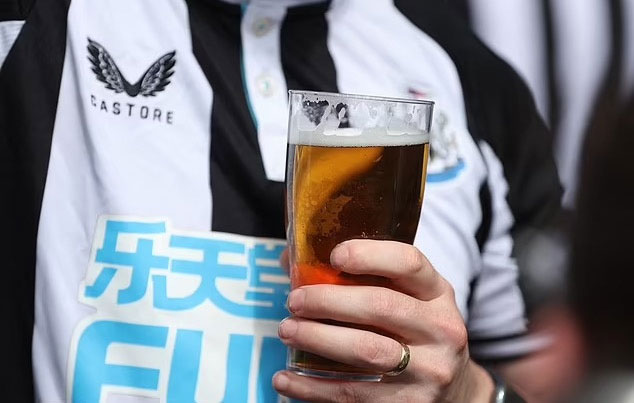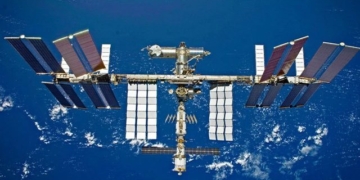The decision to ban alcoholic beer at 8 World Cup stadiums has posed challenges for AB InBev, the sponsor that invested $75 million in the World Cup.
In a surprising turn of events, Qatar announced a ban on alcoholic beer at 8 stadiums hosting the World Cup. This leaves fans with only one beer option – although it is a non-alcoholic one.
Football fans can still purchase Bud Zero, a non-alcoholic beer that tastes similar to the company’s best-selling alcoholic beverage.

Stalls in World Cup stadiums will not sell regular beer. (Photo: Reuters).
A serving of Bud Zero contains 0 grams of sugar, equating to 50 calories. This is Bud’s first non-alcoholic beer, launched in the U.S. two years ago, targeting the growing trend of consumers opting for non-alcoholic beverages.
Non-alcoholic beers have been around for some time but have recently surged in popularity. The non-alcoholic trend began to emerge one or two years prior to the pandemic and has continued to grow rapidly. The demand for non-alcoholic alternatives is largely driven by younger consumers.
Qatar is an Islamic country considered very conservative and strictly regulates the sale and consumption of alcohol. In September, officials stated that ticket holders would be able to purchase alcoholic beer three hours before the match starts and one hour after the final whistle, but not during the match.
“After discussions between the host country authorities and FIFA, a decision has been made to focus on selling alcoholic beverages at fan destinations and licensed venues, removing beer sales points from the FIFA World Cup 2022 stadiums in Qatar,” FIFA stated.
FIFA noted that this decision would “not affect” the sales of Bud Zero. Subsequently, Budweiser tweeted: “Well, this is awkward,” although this social media post was quickly deleted.
A spokesperson for Anheuser-Busch InBev stated: “As a partner of FIFA for over three decades, we look forward to activating FIFA World Cup campaigns worldwide to celebrate football with our consumers. Some stadium activities planned cannot proceed due to circumstances beyond our control.”
This situation is somewhat awkward for AB InBev, the main sponsor of the World Cup, which had planned to sell regular Bud beers. Just days earlier, some sources indicated that World Cup staff had moved beer tents to less visible areas of the stadium.
AB InBev reportedly paid $75 million for the sponsorship. Therefore, this decision complicates their marketing plans as it significantly reduces the brand’s presence among thousands of fans at the World Cup. However, it can be said that the larger part – the brand’s television advertising featuring superstars like Lionel Messi and Neymar Jr. – will not be affected.
“The decision to ban all alcoholic beverages around the World Cup venue just days before the tournament begins creates the illusion that FIFA is not in control of its own tournament and risks putting Budweiser, the main sponsor and long-time partner of the government, in a difficult position,” said Conrad Wiacek, head of sports analysis at GlobalData.
Wiacek further shared that this decision could lead to future repercussions, noting that Budweiser’s partnership with the World Cup will expire after this year’s event.
“However, Budweiser will be cautious in burning bridges with the governing body, as the tournament in the U.S. in 2026 will open up significant potential,” he added.
The FIFA World Cup Qatar 2022 kicks off on Sunday and runs until December 18.


















































